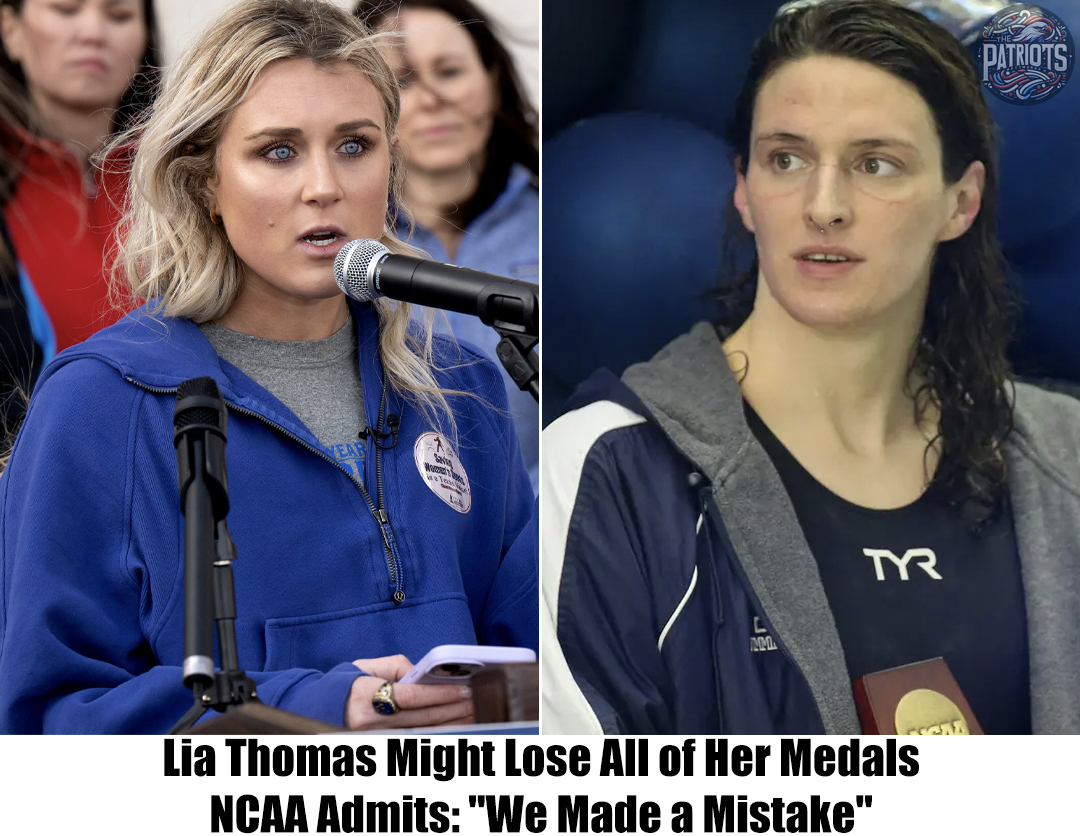

In a groundbreaking turn of events, the National Collegiate Athletic Association (NCAA) has decided to transfer medals from Lia Thomas to Riley Gaines, marking a significant moment in the ongoing dialogue about fairness, inclusivity, and the intersection of identity in collegiate sports. This decision, while met with a spectrum of reactions, highlights the evolving landscape of competitive athletics and the complexities that arise in navigating the balance between inclusivity and fair competition.
Lia Thomas’s dominance in collegiate swimming has been a focal point of controversy and conversation. As a transgender athlete, her achievements sparked debates about fairness and the competitive dynamics within women’s sports. The NCAA, in its initial evaluation, deemed her participation in compliance with regulations. However, recent developments indicate a reevaluation of the honors bestowed upon Thomas, prompting a reassignment of medals to Riley Gaines.
As the NCAA revisits its decisions, the spotlight shifts to Riley Gaines, an accomplished athlete whose dedication and talent have often been overshadowed by the ongoing debates surrounding Thomas. The decision to transfer medals acknowledges Gaines’s accomplishments and provides her with the recognition she deserves, reinforcing the NCAA’s commitment to equitable representation of athletes irrespective of their background.
The NCAA’s decision to transfer medals between Thomas and Gaines is unprecedented and raises critical questions about how governing bodies navigate the delicate balance between inclusivity and fair competition. As society evolves in its understanding of gender identity, sports organizations find themselves at the forefront of adapting policies to ensure an equitable playing field for athletes of all backgrounds.
The NCAA’s announcement has triggered diverse reactions from the public, athletes, and sports enthusiasts alike. Some applaud the move as a step towards recognizing the accomplishments of all athletes, while others express concerns about the potential implications for future evaluations of transgender athletes. The public discourse surrounding this decision underscores the broader societal impact of policy changes in the realm of collegiate sports.
For Lia Thomas, this development marks a significant moment in her athletic journey. As the focus shifts from her achievements to a recalibration of honors, Thomas finds herself navigating new challenges and conversations about the broader implications of transgender athletes in collegiate sports. Her experience becomes emblematic of the evolving narrative around identity and inclusivity within the sporting arena.
For Riley Gaines, the transfer of medals signifies a triumph amidst controversy. The recognition of her accomplishments by the NCAA serves as validation for years of hard work and dedication. Gaines’s story becomes not only one of personal achievement but also an emblem of resilience in the face of systemic challenges that can overshadow individual talent.
The NCAA’s decision prompts a broader conversation about the future of inclusivity in collegiate sports. How can policies be crafted to embrace the diversity of identities while maintaining the principles of fair competition? The complexity of this challenge requires a collaborative effort, drawing on the expertise of athletes, medical professionals, ethicists, and administrators to create policies that stand the test of time.
As the NCAA transfers medals from Lia Thomas to Riley Gaines, the collegiate athletics landscape finds itself navigating uncharted waters. The decision underscores the evolving nature of sports and the ongoing quest for a balance that honors individual identities while upholding the principles of fair competition. In the tales of Lia Thomas and Riley Gaines, we witness not only the triumphs and challenges of individual athletes but also the broader narrative of transformation within collegiate sports.
Leave a Reply